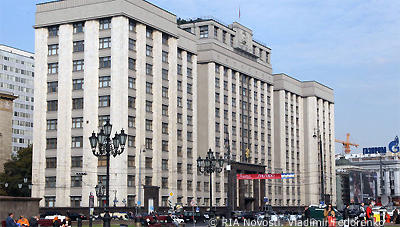Interfax: Recurrent Western attempts to ‘educate’ the East a kind of mania – Naryshkin

MOSCOW. Dec 21 (Interfax) – World history shows that ideological wars have become a constant of Western policies, Russian State Duma Speaker Sergei Naryshkin said in his article published by Russian newspaper ‘Izvestia’ on Monday.
“The fact is that from time to time the West attempts to ‘educate’ the East. But having no authority to do this, it gets rebuffed, making its [Western] inferiority complex even worse. Lessons of history do not make Western leaders any wiser, but rather aggravate them, making their preparations for another doomed attack increasingly devious. And this is more like a mania, if you like,” Naryshkin said.
He also said that “contemporary propaganda methods can turn everything upside-down but history, regardless of which way it is portrayed, is ultimately a depositary of facts.”
“And the notion that facts are truly ‘stubborn things’ also becomes relevant when you look at how the West constantly drives itself into a corner. Centuries spent in its attempts ‘to adjust’ the cultural code of Russia by military means were followed by economic pressure and blackmail but ‘cold’ ideological wars have become even more frequent, evolving into a constant of Western policies,” Naryshkin said.
“But despite this ‘temporary freeze’ tactics bears no fruit, our restless partners, having barely recovered their losses, are once again setting their focus on the Middle East, on Eurasia, only to make their favorite mistake there one more time,” he went on.
By saying ‘the West’, Naryshkin means “a part of Europe and its old colonist child, the U.S.”, adding that “the New World’s addiction to the Old World is still there,” he said.
“But the ‘overgrown child’ has never acquired the cultural heritage of its ancestors. As for the experience of European democracy, the child perceived it as a challenge and altered it in its own way. Are the [child’s] outright claims to be a special one merely a consequence of a painful conflict between ‘fathers and sons’? Is this the reason for such a close attention shown by the U.S. to everything that is going on in the common European house?” Naryshkin said.
“The direct interference by America in the affairs of Middle-Eastern countries is another echo of the imperial past of its European great-grandparents,” Naryshkin said.
